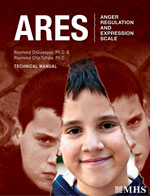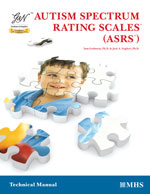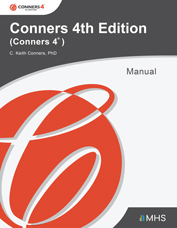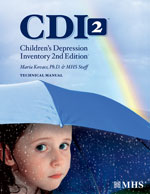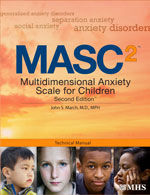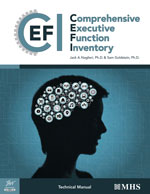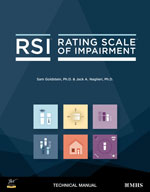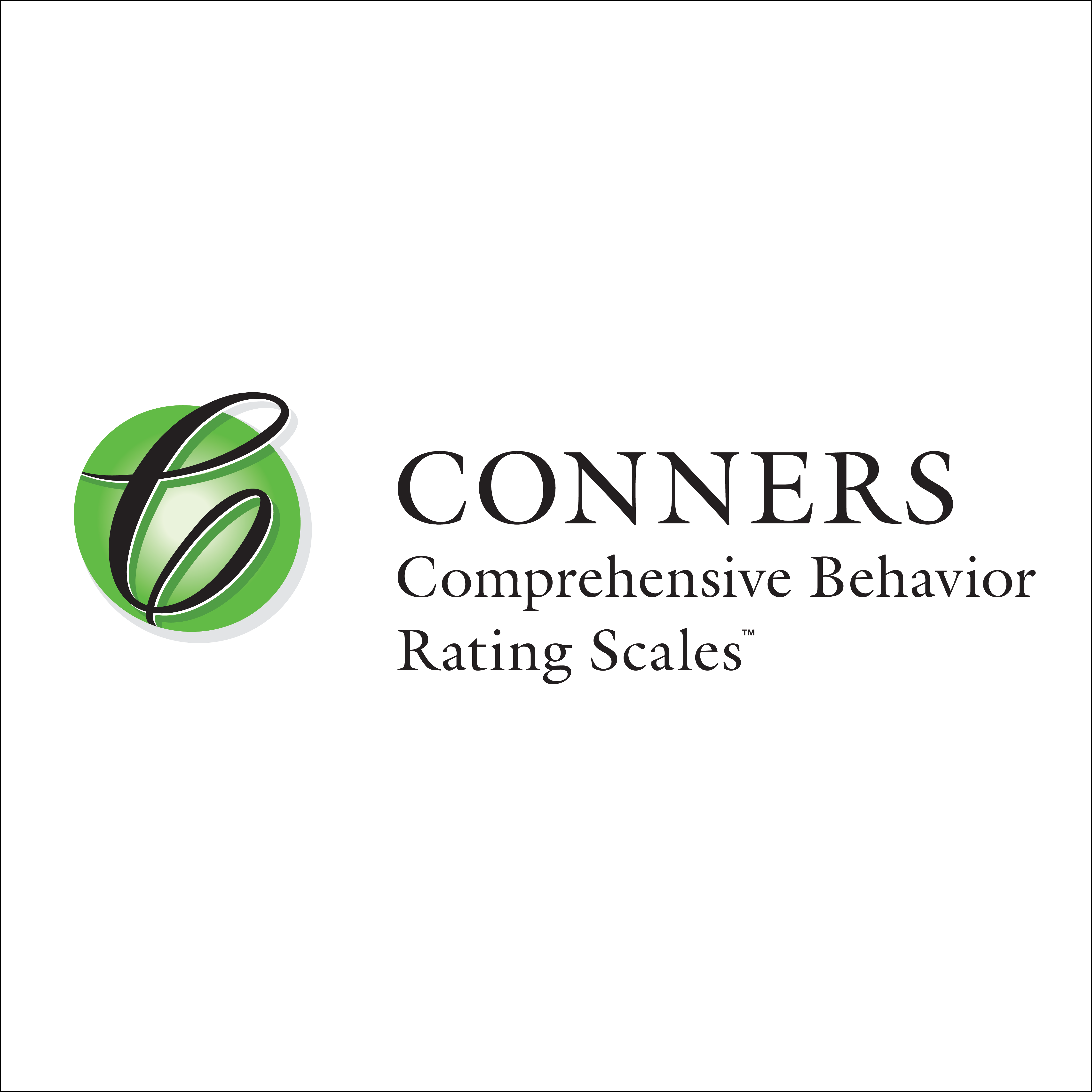
Conners CBRS®
Conners Comprehensive Behavior Rating Scales™
Filters
The Conners Comprehensive Behavior Rating Scales™ (Conners CBRS®) provides a thorough overview of issues and disorders in youth. By using input from multiple sources, including parents, teachers, and the youth themselves, the Conners CBRS assesses behavior in different settings with rating forms specifically designed for parents, teachers, and youth to self-report.
The Conners CBRS provides a wealth of information with scores for DSM 5 Symptom Scales, Content Scales, Other Clinical Indicators, Critical Items, and Impairment Items.
Age
- Parent & Teacher: 6 to 18
- Self Report: 8 to 18
Administration Type
- Parent
- Teacher
- Self
Administration Time
- 20 Minutes
Number of Items
- Parent: 203
- Teacher: 205
- Self-Report: 179
Qualification Level
- B
Format(s)
- Online (Administration & Scoring)
Reading Level
- 3rd to 5th Grade
- Identify students for potential eligibility in special education programs
The Conners CBRS determines the presence of social, emotional, behavioral, or academic difficulties.
- Develop informed intervention and treatment strategies
The Conners CBRS provides information on a broad range of childhood disorders and concerns.
- Monitor response to intervention and effectiveness
The Conners CBRS offers detailed progress reports.
- Gain clarity by using one of the most comprehensive behavior ratings scales available
The Conners CBRS allows for the identification of comorbid disorders that assist with differential diagnosis.
- Conveniently administered online with the MHS Online Assessment Center+ (MAC+)
- Quickly screen and monitor treatment with the Conners Clinical Index (Conners CI™)
- Gain a multi-rater perspective of the youth's difficulties
The Conners CBRS offers a Parent, Teacher, and Self-report version.
Assessment Reports provide detailed information about scores from a single administration, presented both numerically and graphically. An individual's scores are compared to those in the normative sample and elevations at the scale and subscale level are indicated.
Progress Reports compare the results of two to four administrations for the same individual to measure changes over time. These reports are ideal to use when monitoring treatment and intervention effectiveness.
Comparative Reports combine the results of different raters to provide an overview of an individual's scores from a multi-rater perspective. This highlights potentially important inter-rater differences in scores.
Conners CBRS –Parent (Conners CBRS–P)
The Conners CBRS Parent forms assess social, emotional, behavioral, and academic problems in children and adolescents ages 6 to 18. The form is available in one comprehensive length and is recommended for initial evaluations and complete re-evaluations. When used in conjunction with teacher ratings, differences between home and school are highlighted.
Conners CBRS – Teacher (Conners CBRS–T)
The Conners CBRS Teacher forms assess social, emotional, behavioral, and academic problems in children and adolescents ages 6 to 18. This version provides comprehensive results and is recommended for initial evaluations and complete re-evaluations. When used with the parent form, differences between home and school are highlighted.
Conners CBRS –Self-Report (Conners CBRS–SR)
The Connors CBRS Self-Report forms measure social, emotional, behavioral, and academic problems in children and adolescents ages 8 to 18. This version provides comprehensive results and is recommended for initial evaluations and comprehensive re-evaluations.
Conners Clinical Index (Conners CI™)
Available as part of the Conners CBRS or as a separate standalone form, the Conners CI is useful as a quick screening and pre-evaluation instrument to see if further evaluation is warranted in one of the following areas: Disruptive Behavior Disorders, Mood Disorders, Anxiety Disorders, Learning and Language Disorders, and ADHD. The Conners CI can also assist in planning and monitoring treatment/intervention.
The Conners CBRS is available online. Once completed, Assessment Reports and Progress Reports are also available to help gather and record information, summarize results, and facilitate discussion.
Conners CBRS DSM-5 Scoring Update
The Conners CBRS has been updated to provide a new scoring option for the Diagnostic and Statistical Manual of Mental Disorders, Fifth Edition (DSM-5) Symptom Scales.
The Conners CBRS now has the following two scoring options for the MHS Online Assessment Center+:
1. DSM-IV-TR The DSM Symptom Scale is scored based on diagnostic criteria in the Diagnostic and Statistical Manual of Mental Disorders, Fourth Edition, Text Revision (DSM-IV-TR).
2. DSM-5: The DSM Symptom Scale is scored based on diagnostic criteria in the Diagnostic and Statistical Manual of Mental Disorders, Fifth Edition (DSM-5).
Reliability
Both internal consistency and test-retest reliability are very good for the Conners CBRS and the Conners CI. Internal consistency coefficients (Cronbach’s alpha) range from .69 to .97, and 2- to 4-week test-retest reliability coefficients range from .56 to .96 (all correlations significant, p < .001). Inter-rater reliability coefficients range from .50 to .89 (all correlations significant, p < .001).
Validity
Support for the validity of the structure of the Conners CBRS was obtained using factor analytic techniques on derivation and confirmatory samples. Convergent and divergent validity were supported by examining the relationship between Conners CBRS scores and other related measures. Overall, scales that assess similar constructs tended to be moderately to strongly intercorrelated, while scales that did not assess similar constructs tended to have smaller correlations.
Results from discriminative validity analyses indicated that Conners CBRS scores accurately discriminate between relevant groups. Results from a series of multivariate analysis of covariance revealed that, for all scales, the means for the target clinical groups were significantly higher than the means for the general population and other clinical groups. In terms of the classification accuracy of the scores (as determined by a series of discriminant function analyses), the mean overall correct classification rate was 78% across all forms.
Over 7,000 assessments were collected in the development of the Conners CBRS and Conners CI, including ratings of children and youth for the normative sample, clinical cases, and for the validity studies. In the normative study, 3,400 Conners CBRS assessments were collected. The large normative data sample is representative of the general U.S. population in terms of ethnicity/race, gender, and parental education level (U.S. Bureau of the Census, 2000). The normative sample is also diverse in terms of parental education level and geographic region.
Separate norms are provided for male and female children and youth in 1-year age intervals. Combined gender norms also are available.
